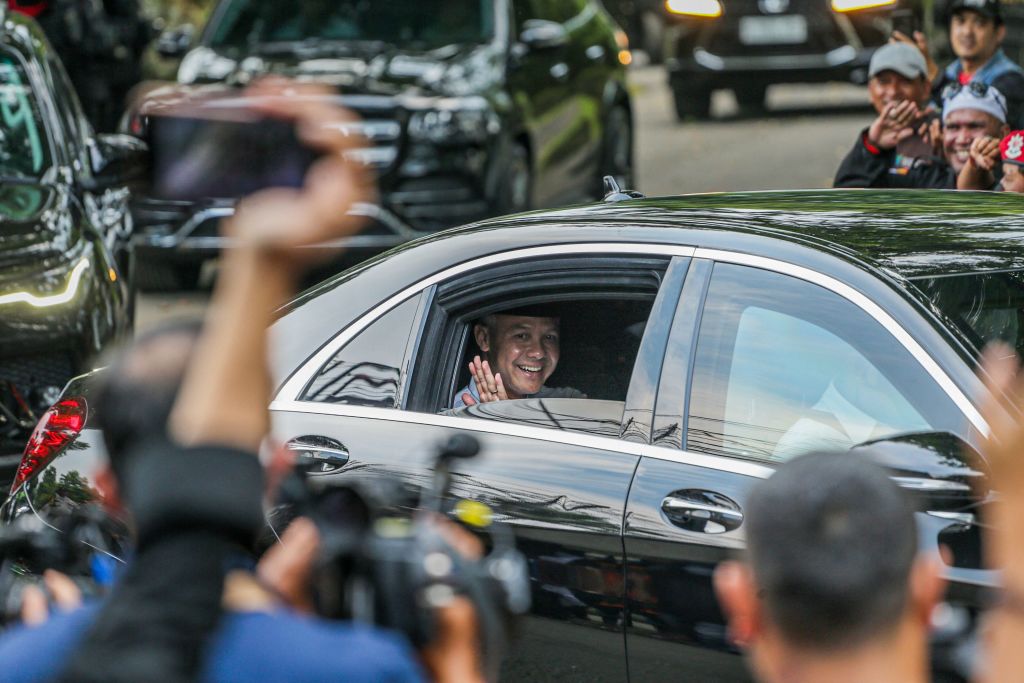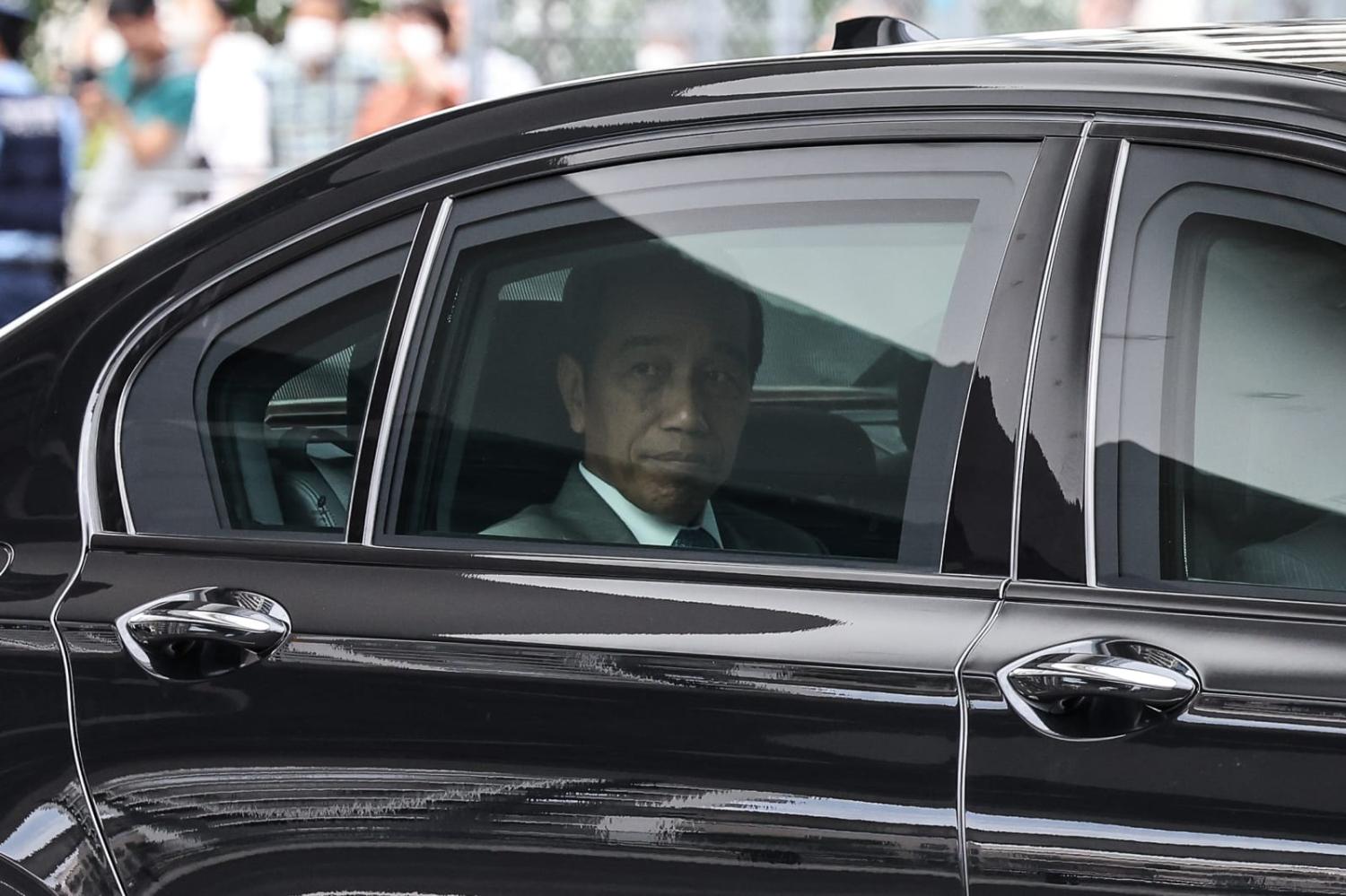Myanmar. The South China Sea. AUKUS. These are but three of a battery of hot button foreign policy issues Indonesia’s next president will have to contend with, even before inevitable surprises.
On 14 February 2024 Indonesia holds local and general elections and the race is already well underway. At the local level, the elections will decide local legislatures, mayors, district chiefs and governors. Nationally, it covers the 575-seat House of Representatives and the election of a new president and vice-president.
President Joko “Jokowi” Widodo won’t disappear from the stage immediately. He completes his second and final five-year term in October 2024. But Indonesia’s election law does not allow a third term, to prevent the recurrence of the six terms the authoritarian leader Suharto had to rule the nation from 1966 to 1998.
By law, a political party with 20 per cent or more of the seats or 25 per cent or more of valid votes in the previous election can nominate its presidential pick to the General Elections Commission, KPU. Parties scoring less than 20 per cent of House seats can form a coalition to meet that threshold.
Of the nine parties that won seats in the 2019 election, only one party gained enough seats to pass the electoral hurdle. The Indonesian Democracy Party of Struggle, PDIP, secured 128 or 22.2 percent of House seats.

In April this year, PDIP chief Megawati Sukarnoputri, daughter of Sukarno, Indonesia’s first president, announced the party’s nominee as Ganjar Pranowo. The two-term governor of Central Java province, Ganjar, 54, has a premature white mane but has forged a track record as an organiser, legislator and administrator. PDIP is also the party of the incumbent president.
Multiple polls show the three top presidential candidates are Ganjar, present Defence Minister Prabowo Subianto (also a candidate in the last two presidential elections), and Anies Baswedan who served as Jakarta governor from 2017–22. The race is tight so far, according to one reputed pollster, the Jakarta-based Charta Politika, which had Ganjar on 36.6 per cent support, Prabowo 33.2 per cent, and Anies 23 per cent.
Megawati’s announcement of her chosen one triggered a flurry of smaller parties offering their support for Ganjar. Megawati, having been president herself from 2001–04, retains enormous political influence. Prabowo is well-known international figure, notorious even, having been once banned from entering the United States on allegations of human rights abuses from his time in the military. Anies, meantime, travelled to Australia in March, meeting with Foreign Minister Penny Wong and Reserve Bank Governor Philip Lowe, as well as speaking at the Australian National University and doing local media interviews.
Whoever wins the 2024 race, the president-elect will confront a crowded international agenda. This was clear from Foreign Minister Retno Marsudi delivering her annual press statement in January, titled “Leadership in a Challenging World”. She pointed to Indonesia having last year hosted the G20 summit meeting in Bali and this year holding role as ASEAN chair. The most recent summit took place 10–11 May in Labuan Bajo, the new go-to holiday destination in the western tip of Flores that faces the famed dragon island of Komodo. Retno conceded disappointment on the lack of progress in Myanmar’s political crisis, having played a personal role in trying to engage the junta to honour ASEAN’s “Five-Point Consensus”.
Jokowi also spoke out about Myanmar at ASEAN meeting this month, stating candidly “there has been no significant progress” in implementing the five-point consensus. Retno will apparently continue with quiet diplomacy, ahead of a follow-up September ASEAN summit in Jakarta.
But other simmering issues remain on the agenda, even if not always at the forefront of official commentary. The South China Sea dispute remains unresolved, with Indonesia rejecting China’s so-called “nine dash line” claims that overlap Indonesia’s exclusive economic zone established under the UN Convention on the Law of the Sea. Indonesia names its EEZ the North Natuna Sea and wants the 1982 UNCLOS agreement to be the base for any maritime boundary negotiation. Indonesia shows no sign of backing down with China, and has displayed a willingness to hold out in other instances. The Indonesia-Vietnam EEZ delimitation agreement was signed in 2022. Negotiations took 12 years.
Any maritime negotiation with Beijing could be assisted by a conclusion to the long-elusive South China Sea code of conduct between ASEAN and China.
Another challenge concerns Australia. Indonesia does not support the AUKUS arrangement with Australia, the United Kingdom and the United States that aims to eventually provide Australia with a fleet of eight nuclear-powered submarines. Indonesia has expressed concerned about escalating tension and naval confrontation with China.
Although this opposition has somewhat ebbed. In March, Indonesia issued only a mild rebuke after the announcement in San Diego of a “optimal pathway” to build the nuclear submarines, calling on Australia “to fulfil its nuclear non-proliferation duties under international law.” Jokowi also notably made a call ahead of the ASEAN summit in May for cooperation with AUKUS and the Quad, the security grouping that covers India, Japan, Australia and the United States, saying “we should view the Quad and AUKUS as partners, and not competitors.” He went on to say: “ASEAN’s aim is to make the region a stable and peaceful one. Without these two elements, it is unlikely for the people of ASEAN to achieve prosperity.”
And this chimes with the view of seasoned observers. Bunyan Saptomo, a retired foreign ministry career professional, told me an interview that the president-elect must cultivate the leadership role of Indonesia in asserting ASEAN centrality to maintain the Zone of Peace, Freedom and Neutrality in Southeast Asia.
As Saptomo put it, “strive for the Indo-Pacific concept that prioritises cooperation and not competition.”

